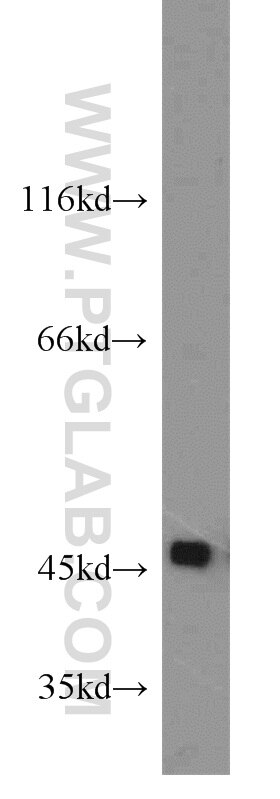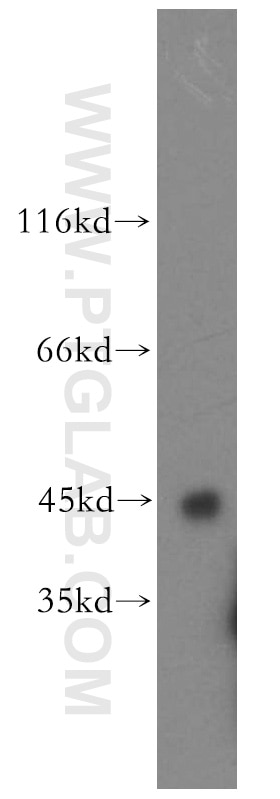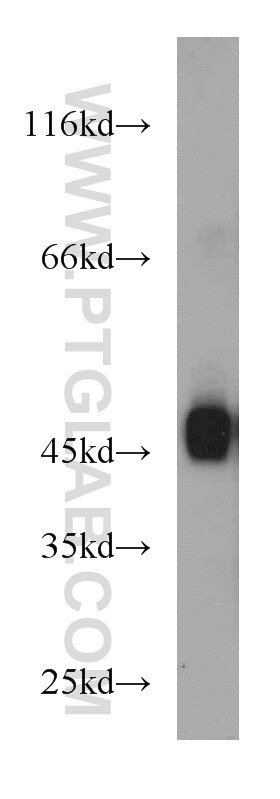SPAM1 Polyklonaler Antikörper
SPAM1 Polyklonal Antikörper für WB, ELISA
Wirt / Isotyp
Kaninchen / IgG
Getestete Reaktivität
human und mehr (1)
Anwendung
WB, ELISA
Konjugation
Unkonjugiert
Kat-Nr. : 11208-1-AP
Synonyme
Galerie der Validierungsdaten
Geprüfte Anwendungen
| Erfolgreiche Detektion in WB | PC-3-Zellen, humanes Hodengewebe, MCF-7-Zellen |
Empfohlene Verdünnung
| Anwendung | Verdünnung |
|---|---|
| Western Blot (WB) | WB : 1:500-1:1000 |
| It is recommended that this reagent should be titrated in each testing system to obtain optimal results. | |
| Sample-dependent, check data in validation data gallery | |
Veröffentlichte Anwendungen
| WB | See 1 publications below |
Produktinformation
11208-1-AP bindet in WB, ELISA SPAM1 und zeigt Reaktivität mit human
| Getestete Reaktivität | human |
| In Publikationen genannte Reaktivität | Rind |
| Wirt / Isotyp | Kaninchen / IgG |
| Klonalität | Polyklonal |
| Typ | Antikörper |
| Immunogen | SPAM1 fusion protein Ag1682 |
| Vollständiger Name | SPAM1 |
| Berechnetes Molekulargewicht | 58 kDa |
| Beobachtetes Molekulargewicht | 45-47 kDa |
| GenBank-Zugangsnummer | BC026163 |
| Gene symbol | SPAM1 |
| Gene ID (NCBI) | 6677 |
| Konjugation | Unkonjugiert |
| Form | Liquid |
| Reinigungsmethode | Antigen-Affinitätsreinigung |
| Lagerungspuffer | PBS mit 0.02% Natriumazid und 50% Glycerin pH 7.3. |
| Lagerungsbedingungen | Bei -20°C lagern. Nach dem Versand ein Jahr lang stabil Aliquotieren ist bei -20oC Lagerung nicht notwendig. 20ul Größen enthalten 0,1% BSA. |
Hintergrundinformationen
SPAM1(sperm adhesion molecule 1), also named as Hyal PH20, belongs to the glycosyl hydrolase 56 family. SPAM1 is a GPI-anchored enzyme present on both the sperm plasma membrane and acrosomal membrane. It is involved in sperm-egg adhesion.
Protokolle
| Produktspezifische Protokolle | |
|---|---|
| WB protocol for SPAM1 antibody 11208-1-AP | Protokoll herunterladen |
| Standard-Protokolle | |
|---|---|
| Klicken Sie hier, um unsere Standardprotokolle anzuzeigen |
Publikationen
| Species | Application | Title |
|---|---|---|
Int J Biol Macromol TMT-based quantitative N-glycoproteomic analysis reveals glycoprotein protection can improve the quality of frozen bovine sperm. |




